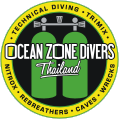


TDI Decompression Procedures Instructor Course
courses > gopro technical > tdi decompression procedures instructor
Course Overview
This course examines the theory, methods and procedures of planned stage decompression diving. The objective of this course is to train Instructors how to plan and conduct a standard staged decompression dive not exceding a maximum depth of 45msw. The most common equipment requirement, gear set up, and decompression techniques are presented. Students are permitted to utilize Enriched AIr Nitrox mixes or oxygen for decompression provided the gas mix is within their current certification level.
Pre-requistes
Minimum age of 18.
Advanced Nitrox instructor certified.
Decompression Procedures certified.
Proof of 150 logged dives.
Proof of 10 student certification at Deep Diver or Advanced Nitrox level.
Details of the course
The Decompression Procedures Instructor course covers:
- Overview of decompression stops versus safety stop
- Physics
- Physiology
- Decompression options
- Equipment consideration
- Dive tables & dive computers
- Dive planning
- Procedures
Course duration and number of dives
The Decompression Procedures instructor course is a 3 day course and 4 dives are required.
Course Price
Additional costs
Recreational Rental equipment if needed.
set p/day
TDI Decompression Procedures Instructor Manual
TDI Standards & Procedures Instructor Manual
TDI Evaluation forms
Equipment requirement
The Decompression Procedures Instructor course has some specific equipment required for this course on top of the standard gear. All students must own or purchase a spool, SMB and wrist slate. The oxygen clean regulator can be purchased or rented (if needed). We supply the nitrox tanks and mixes and the oxygen analyser (if needed).
Got something to ask us ?
We are Technical diving education professionals and over the years we have been asked almost everything, feel free to look at our most commonly asked technical diving questions or contact us directly.
